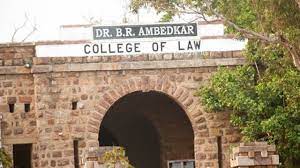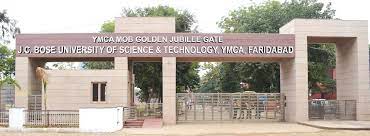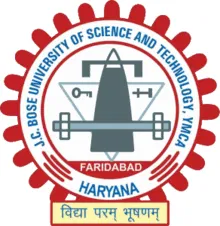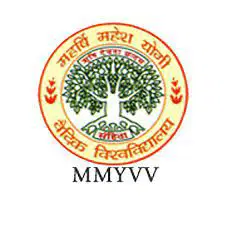To obtain a Ph.D. in Geology, students must complete basic coursework in three areas of geosciences: hydrogeology, sedimentology, and geophysics. Students also complete a dissertation and write a research paper. The Ph.D. requires the completion of a thesis or research project. To earn this degree, students must present their work at a conference or have their first-authored paper published in a peer-reviewed journal.
Graduates of this program are trained to become independent teachers and researchers. While students must have at least one undergraduate degree in geology, other majors may apply. The application process requires a statement of purpose, official transcripts, and three letters of recommendation. Applicants with foreign degrees must submit TOEFL or IELTS Academic scores to prove their mastery of English. GRE scores are not required. Before applying for a Ph.D. program, prospective students should be sure to review the University's website to learn more about the admission requirements and programs.
The program requires 4 to six years of full-time study. Applicants must have at least a master's degree and a bachelor's degree in geology. While studying for a Ph.D. in Geology, students choose a specialty area. These specialties provide students with more opportunities to conduct research and examine issues in the field. You can also choose a topic of study within this discipline and focus your research.
Ph.D. in Geology Eligibility
Candidates who want to take admission in Ph.D. must have a post-graduate degree in Geology and its relevant discipline with at least 55% marks from a recognized university and must have passed the national level entrance examination or university level entrance examination. National level entrance exams like UGC NET / UGC CSIR NET / GATE / SLET or University entrance exam consisting of written tests and personal interviews.
The Benefits of a Ph.D. in Geology
A Ph.D. in Geology will equip you with the scientific knowledge and tools necessary to solve real-world problems. With this degree, you can be an environmental steward and tackle environmental problems in a more efficient manner. In addition to receiving training, in theory, you will also be exposed to cutting-edge field observation techniques. Furthermore, your education will allow you to study various geological problems in different parts of the world, including those on other planets.
A Ph.D. in Geology is the terminal degree for a career in academia and research in earth, planetary, and environmental sciences. Graduates with this degree are in demand for positions in public and private organizations, such as in natural resources organizations, which focus on natural resource development and regulation. The cost of a Ph.D. in Geology varies from program to program and from country to country. To learn more about the costs, contact prospective schools directly.
A Ph.D. in Geology is a terminal degree and the starting point of a career in geology. It provides specialized knowledge and skills, improves analytical skills, and enables one to apply theories in the field. The benefits of a Ph.D. in Geology are many. The salary will be higher than that of an undergraduate and will be more lucrative. Moreover, you can even pursue a research career.
The Career and Job Opportunities of Ph.D. in Geology
For those interested in pursuing a Ph.D. in geology, there are many career options available. A geologist can work in higher education or academia, or in industrial settings as a paleontologist, engineering consultant, or seismologist. For more information about career options, check out the Occupational Outlook Handbook 2012-22 Edition. You can also talk to former students and ask them for recommendations.
A Ph.D. in geology can take four to six years to complete. During this time, students earn master's and bachelor's degrees. After graduation, students can choose a specialization, which will allow them to further their research and explore issues in a specific field. A Ph.D. in geology can lead to various jobs, including research, consulting, teaching, and government service.
A Ph.D. in geology is a very lucrative degree. It will provide you with specialized education that can improve your job skills. In addition to working for government agencies, you'll have the opportunity to apply your knowledge in environmental planning, business, and public policy. The cost of your education will vary depending on the length of the program, academic institution, and country you choose to study in. However, the program should be affordable if you qualify. If you're unsure about the cost of your degree, you can check with prospective schools.
The Future Scope of Ph.D. in Geology
A Ph.D. in Geology is a terminal degree in the field. It is an excellent start to an academic career in earth or planetary science. A Ph.D. in Geology prepares individuals for research positions in government, private sector, and academia. Many employers in these fields are looking for graduates with this degree. You can find a wide range of job options in the field.
There are many different career options available to geology Ph.D. graduates. They can find work in academia or higher education. In the field, they can work for environmental consulting companies, industry, museums, and governments as seismologists, engineering consultants, and paleontologists. The cost of a Ph.D. in Geology will vary depending on the country and academic institution you choose to attend. You should contact prospective schools directly to inquire about their tuition and financial aid.
A Ph.D. in Geology will prepare students for careers in various aspects of Earth science. In addition to being a generalist, graduates can choose from a variety of fields, including the Oil and Mining sector. Other fields include environmental protection, resource management, and mineral and oil exploration. You'll be able to apply for many jobs, from teaching to consulting. And a Ph.D. in Geology will open up endless career options.
Ph.D. Research Programme duration
The Ph.D. in Geology course is a minimum of 3 years and a maximum of 5 duration. This depends on the university offering the course.
Fees for research program for Geology
The average fee for Ph.D. in Geology degree is between INR 50000 and INR 500000.
 5 Years
5 Years
 PhD
PhD
 Research
Research

































 back
back